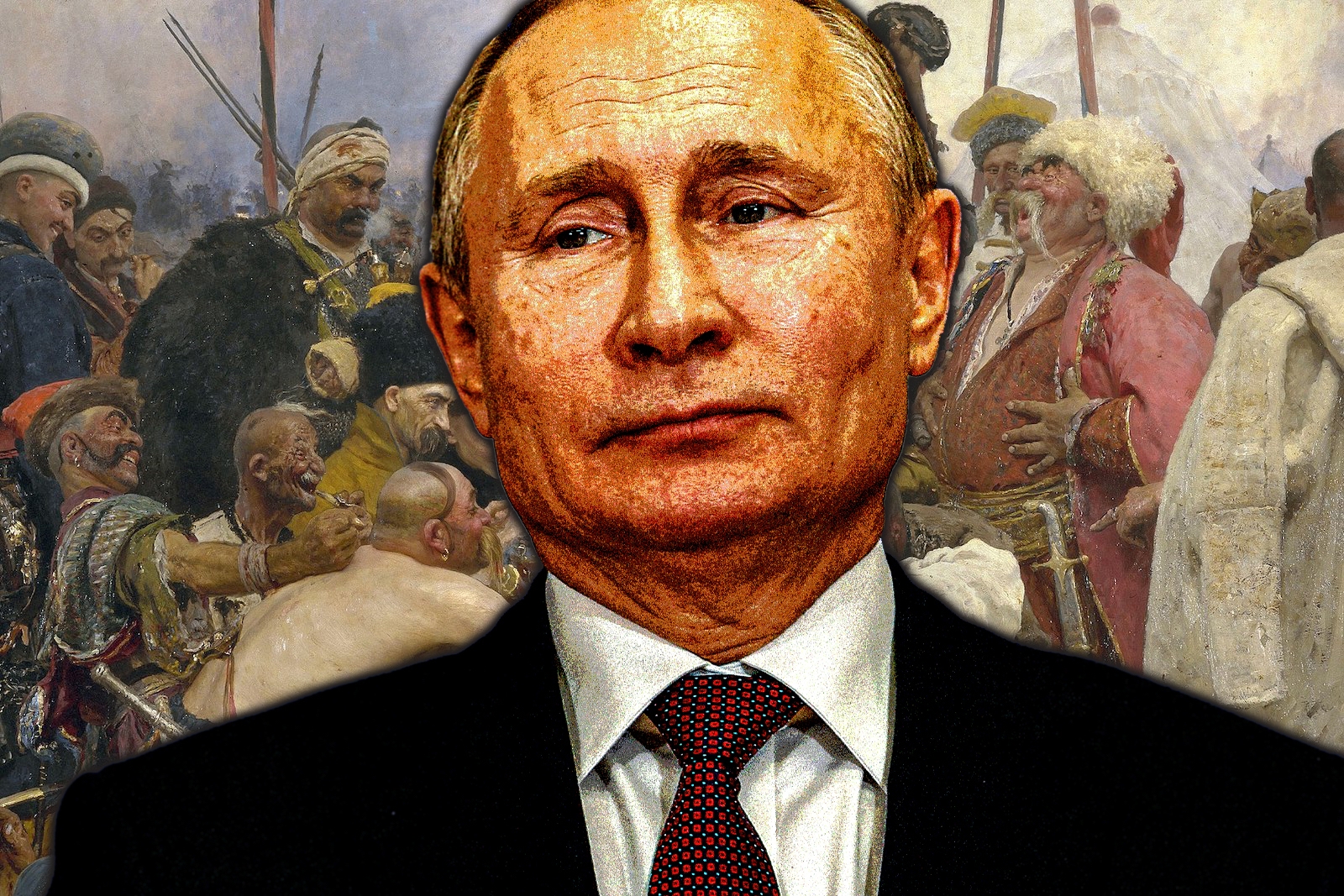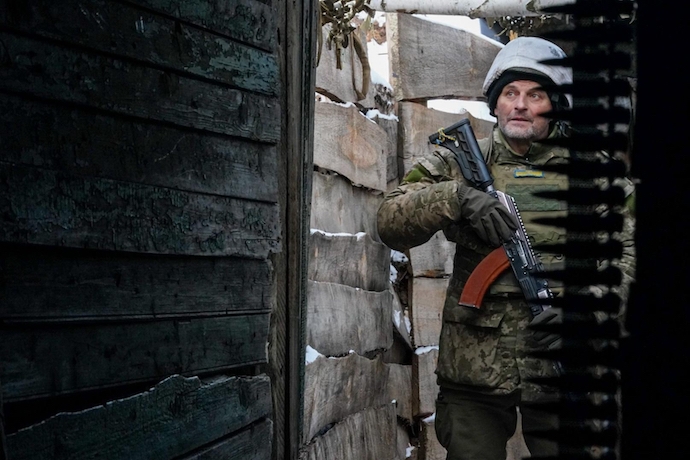
The Second Battle of Poltava: Ukraine and the Fate of the West
Before dawn on the morning of July 8, 1709, on the banks of the Vorskala River, the armies of Sweden and Russia clashed over the strategic fortress of Poltava. The Russian bastion commanded the river, a tributary of the Dnieper that bifurcates Ukraine between East and West. Poltava was the gateway to the rolling grasslands of the Kipchak Steppe, the southern conduit to bypass the Caucasus mountains and reach the traditional Russian heartland of Muscovy itself.
The Swedish forces, led by the youthful King Charles XII, and supported by a contingent of Polish allies, besieged Poltava in the hopes of wintering in Ukraine and joining with the forces of Zaporizhian Cossack Hetman Ivan Mazepa for an invasion of Russia from its vulnerable steppe. With the Russians and their allies tied up in Livonia, a Swedish victory at Poltava promised to separate Ukraine from Russia, depriving the empire of its access to the Black Sea.
The Battle of Poltava, and the larger war for Ukraine, became the defining moment of the Great Northern War. Declared by Tsar Peter I in 1708, the cunning modernizing Russian ruler hoped to defeat imperial Sweden—then the preeminent power in North Central Europe since the stunning victories of King Gustavus Adolphus in defense of the Protestant cause during the Thirty Year’s War. Seizing Azov from the Ottomans in 1696 earned the Tsar access to a warm water port on the Black Sea and the moniker “Peter the Great,” but vanquishing Sweden and its modern standing army promised to establish Russia as a European nation and a great power.
On the morning of July 8, in a desperate attempt to save his nascent empire, Tsar Peter personally led a relief force against the Swedes then encamped around Poltava. By afternoon, the Russians, along with their Kalmyk and Cossack suzerains, had routed the Swedish army and chased the young Swedish ruler as far as Istanbul. Swedish power was broken, never to rise again. Instead, Russia and later the Soviet Union emerged as a great power, commanding Ukraine, Eastern Europe, and the Black Sea, for the next three centuries.

With the drums of war again sounding in Ukraine, it appears Europe is now on the cusp of another Poltava. In fact, literally, were Russia to invade Eastern Ukraine as is expected, Moscow would likely seize Ukraine’s majority Russophone provinces East of the Dnieper, up to the city of Poltava, and down to Odesa, securing the Black Sea coast and control of the Danube. And many of the same players are arranged again. Certainly, the position of Moscow is apparent. So too is the West, now led by the United States and its allies in NATO. The Ukrainians, heirs to the Zaporizhian Cossacks, are divided between pro-Western and pro-Russian populations just like their forefathers. Even the Crimean Tatars are again preparing for battle against Russia, while Turkey attempts to balance between both powers.
So, will a Russian invasion of Ukraine alter the European balance of power as did the last battle of Poltava? Russia may not emerge as a peer competitor to the United States as China has, especially considering its perilous demographic situation and its oil and gas-dependent economy. But by invading Ukraine, President Vladimir Putin will have effectively reversed history, returning Russia to the era of Poltava, its era as a great power, before the collapse of the Soviet Union.
This is more than simply a matter of conquering territory and extending Russian military power to the borders of NATO. It is symbolic. On December 8, 1991, the leaders of Soviet Russia, Ukraine, and Belarus signed the Belovezha Accords, jointly seceding from the USSR. That effectively dissolved the union with the withdrawal of the three populous Slavic nations, leaving lone Kazakhstan the last remaining Soviet republic to secede from the USSR one week later.
Invading Ukraine today erases the Belovezha Accords, both as a political fact, and as a symbol of Russia’s defeat during the Cold War. Already, Moscow reintegrated Belarus into its political orbit after the 2021 protests against President Alexander Lukashenko forced the strongman to strengthen the political union, or the Union State, between the two nations. The surprise protests in Kazakhstan were an opportunity for a Russian-led intervention to clip Nur-Sultan’s carefully constructed independence from Moscow. All that remains now is Ukraine.
That is why a Russian invasion of Ukraine is almost inevitable. It is Russia’s chance to restore its preeminent position as a great power commanding Ukraine, Eastern Europe, and the Black Sea. The Biden administration and NATO’s strategy so far has been to threaten a series of unacceptably high economic sanctions to force Russia out of the international financial system. But money is not power. Power is power, and there is no greater power than for a once defeated nation to rewrite history. That goes for Russia, and for Putin personally. He now has a chance to undo the shame he felt in 1991, when, in his mind, the politicians back in Moscow surrendered Russian power, before the West, let alone Kazakhstan, expected it to yield.
What remains to be seen is what happens to the West. In 1709, the battle of Poltava spelled the end of Sweden’s empire as formalized in the 1721 Treaty of Nystad. It lost its Baltic dependencies, and later in 1809, the crown jewel of Finland to Russian rule. Never again did Stockholm rise to become a great power able to compete with the leading states of Europe. Rather it became a developed neutral nation, balancing its relations with the great powers, while focused on expanding its national exports to fund a generous social welfare system.
That is by no means a dismal future, but it is a distinct one. It is a future where the West, or at least Europe, learns to accept rather than resist Russia’s preeminence, and eventually forgoes sanctions for a lucrative trade in the import of natural gas through the Nord Stream 2 pipeline. If Poltava is any precedent, then the next war for Ukraine is more likely to hasten the decline of the West rather than spark its revival to face the historic challenge posed by Moscow.

